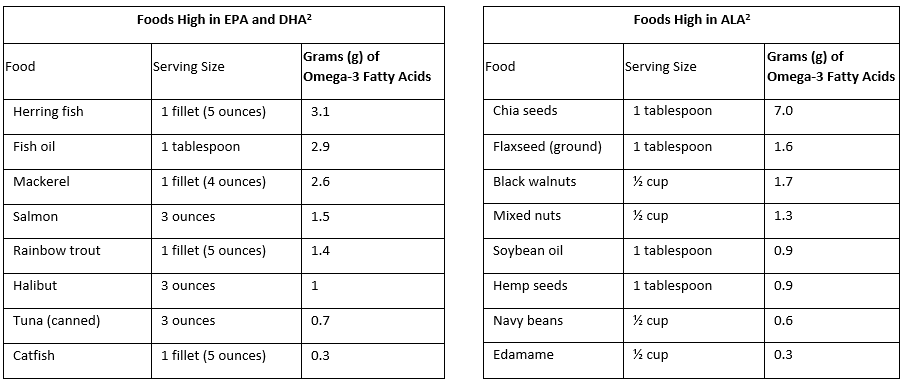Brain Health
Written by SVMC Registered Dietitian, Melissa Williford, RD, LMNT and intern, Ramon Vasquez.
In the United States, we are currently seeing an increase of disease related to the human brain. Over 6 million Americans are living with Alzheimer’s dementia.1 The Alzheimer’s association has reported the number of Alzheimer’s dementia deaths have increase by 145.2% since the year 2000. Deaths have increased by 16% due to the COVID 19 pandemic.1 Signs of dementia and Alzheimer’s begin to show as early as 20 years before the symptoms appear.1 Nutrition helps slow the progression of Alzheimer’s and is associated with better memory capacity and lower risk of cognitive deterioration.2 Incorporating a Mediterranean diet provides a sufficient amount of nutrients important to our brain health. The foods included in the diet are fresh vegetables and fruits, whole grains, olive oil, nuts, legumes, fish, moderate amounts of eggs and dairy, moderate amounts of red wine, with red meat or poultry only sparingly. Nutrients that are in the diet include plenty of omega-3 fatty acids. These fatty acids are eicosapentaenoic acid (EPA) and docosahexaenoic acid (DHA) that are found in fish or seafood, and alpha-linolenic acid (ALA) that are found in plant oils, nuts and seeds. Below are examples of these foods.

Foods that benefit brain health include whole grains; which include essential nutrients like B vitamins and iron. Other foods that are great for your brain are colorful fruits and vegetables that such as blueberries, carrots, broccoli, tomatoes, and leafy greens. Try to incorporate turmeric into your cooking and only consume chocolate that is 80% dark or more. Adding seeds and into your meals will improve the health of your brain and keep you full longer with protein content. Foods that you should limit are saturated fats, specifically meat, by consuming about 3 oz. portions or less per meal. Other foods to limit are high sugar foods that should be a rare treat. Refined grains like white bread, flour tortillas, white rice, and cereals, which should be replaced with whole grains. It is important to have adequate sleep, which means deep sleep that allows your brain to create memories and “untangle”. Glucose metabolism increases during sleep, supporting long term and short-term memory plus overall learning. Adding daily exercise is also beneficial; it allows the brain to focus, de-stress, and reduce anxiety.
National Institute of Neurological Disorders and Stroke recommends the following tips to improve sleep:4
- To create a set schedule
- Exercise for about 20 to 30 minutes a day
- Reducing caffeine intake, especially before bed
- Relax before bed, which can include meditation, reading, breathing exercises, taking a bath.
- Create a room for eliminate screen time at least 1 hour before bed.
- Lying in bed can decrease your chances of falling back to sleep. If you have woken up and cannot go back to sleep.
- Facts and Figures. Alzheimer's Disease and Dementia. https://www.alz.org/alzheimersdementia/facts-figures. Accessed June 8, 2021.
- Martínez García RM, Jiménez Ortega AI, López Sobaler AM, Ortega RM. [Nutrition strategies that improve cognitive function]. Nutricion Hospitalaria. 2018 Sep;35(Spec No6):16-19. DOI: 10.20960/nh.2281.
- Omega-3 fatty acids food list. Nutrition Care Manual. https://www.nutritioncaremanual.org/client_ed.cfm?ncm_client_ed_id=448 . 2021
- Brain basics understanding sleep. NIH. ninds.nih.gov. 08/13/2019.



